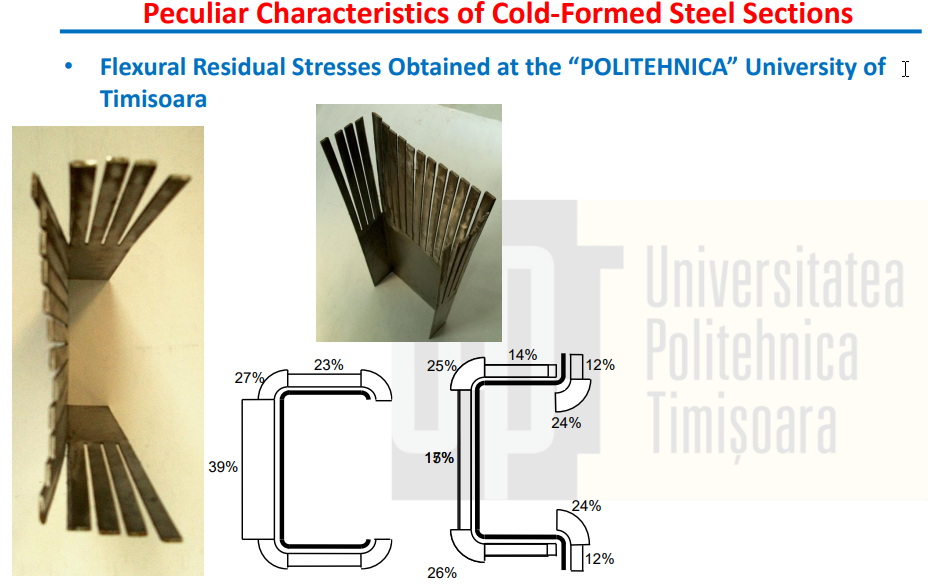
FLEXURAL RESIDUAL STRESSES.
In this study, carried out at the “POLITEHNICA” University of Timisoara, the section was cut into thin strips to release these internal stresses. The deformation of the strips reveals how residual stresses are distributed across the web, flanges, corners, and lips.

SOFTWARE FOR DESIGNING AND MANUFACTURING LIGHT STEEL FRAME (LSF) STRUCTURES
This comprehensive article explores essential software tools for designing Light Steel Frame (LSF) structures, detailing capabilities, advantages, and disadvantages of options like Vertex BD, FRAMECAD Structure, and StrucSoft MWF. It also covers software for generating production files compatible with roll former machines, emphasizing efficiency in modern construction workflows.

USING FOAM CONCRETE AS INSULATION IN LIGHT STEEL FRAMING STRUCTURES
This article explores the use of foam concrete as an effective thermal and acoustic insulation material in LSF (Light Steel Frame) structures. It examines its technical properties, advantages over traditional insulation methods, application techniques, and its compatibility with steel framing systems. The article is ideal for engineers, architects, and builders seeking innovative, sustainable insulation solutions in modern construction.

BRACING SYSTEMS IN LIGHT STEEL FRAME STRUCTURES: A COMPREHENSIVE TECHNICAL ANALYSIS
This article provides a comprehensive analysis of bracing systems in Light Steel Frame (LSF) structures, focusing on X-bracing, K-bracing, and shear wall bracing with plywood/OSB panels. It examines their structural behavior, advantages, disadvantages, implementation methods, and performance in ensuring lateral stability and seismic resilience.

